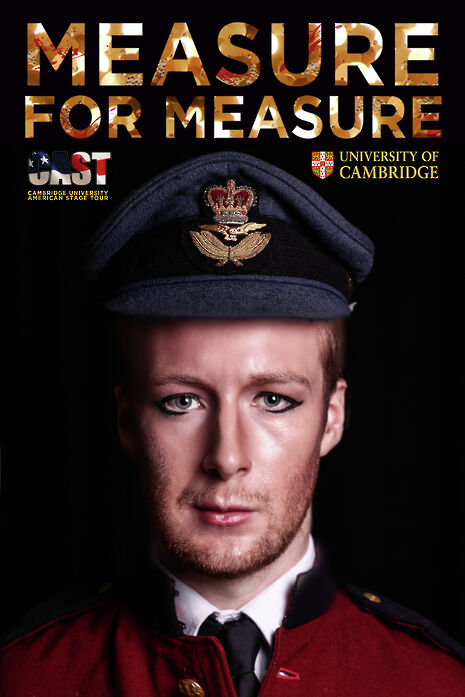Theatre: Measure for Measure
Seb Sutcliffe is impressed by this well-acted and nuanced take on a Shakespeare play

Gauze is the go-to in amateur dramatics, and in Measure for Measure it is used both ingeniously and sparingly. The movable set breaks down any real sense of coherent place or time and places the whole thing much more into a 'mindscape' than any geographical place. Admittedly, the gauze didn’t always work. There was one occasion when the actors were lost behind the gauze and it looked like the actors had simply forgotten to come on stage.
Rozzi Nicholsson-Lailey as Isabella provided the play with a human centre. Her journey was vividly imagined and incredibly realised. Although once or twice weeping in a way that would make Niobe blush, her performance gave the play as a whole a credibility I fear it might otherwise have lost. Her relationship – if you can call it that – with Angelo (Max Upton) is not in my mind pitched quite right and is the only moderate fault in an otherwise stupendous show. I could allow myself to believe Angelo’s perversion but didn’t get any real sense that he would ever want to make those fantasies become realities. But, in a way, this made for a much more interesting dynamic.
Subtlety came from the cerebral and clownish Angelo, while the other characters simmered with richness and merriment. Sarah Livingstone as Provost had a phenomenal stage presence, as did Hugh Wyld as the wavering and saucy Lucio. Paul Adeyefa was terrific, especially as the hapless Elbow, gyrating and stammering his way around the place. Emma Powell as Pompey brought great variety to the mix as well, playing a sort of purse-lipped, drunken Micky Flanagan.
The only points where things wavered slightly on the staging front were when musical scene changes gave the actors a bit too much to live up to volume-wise. Also some of the modern aspects, for example a press conference, worked well thematically, but were carried on for longer than they had legs for.
Dichotomy is key to Measure for Measure, but what is often overlooked in most productions is the discrepancy between old and new. Parham’s production, with its Lady Gaga and dubstep remixes of Elgar and additional songs in modern English, drew sharp attention to Shakespeare’s strengths and failings in a modern context. But most importantly, it revealed how the central ethical dichotomy of the play is ever present.
One can’t help but feel that despite how tremendously nuanced this production is, it comes down slightly harder on conventional morality than it does sexual impartiality. The Duke’s intended marriage, for example, however perverse, is often seen as a symbolic union between the forces of justice and mercy. But here, as per the Lady Gaga, it is merely love “objectified by what men say is right”, and he is treated with unrelenting scorn. This, along with the spoof choral music and the religious habits looking like something out of Star Trek meant that the production reflected where we are now as opposed to then.
One of the greatest strengths of this show is the way in which it goes beyond the script. Visual gags are rife, and everyday activities, like Lucio having to take a phone call mid-speech, add to that sense of the modern day impinging on an ancient thing. It is a world where the mundane eventually begins to dominate the action and motivations of the characters; a world where the media has its sway. As the Friar argues that life is more death-like than death itself, so the play ends with a striking image of isolation, of characters cut-off within themselves.
Charlie Parham has been a driving force in Cambridge theatre over the past few years. His attention to detail and fearlessness in the face of classic plays has gained him a worthy reputation as a hugely talented student director. Good luck to him and the rest of the graduating CAST members for the next stage of their journeys.
 News / Uni Scout and Guide Club affirms trans inclusion 12 December 2025
News / Uni Scout and Guide Club affirms trans inclusion 12 December 2025 News / Cambridge Vet School gets lifeline year to stay accredited28 November 2025
News / Cambridge Vet School gets lifeline year to stay accredited28 November 2025 Science / Did your ex trip on King’s Parade? The science behind the ‘ick’12 December 2025
Science / Did your ex trip on King’s Parade? The science behind the ‘ick’12 December 2025 News / Cambridge study finds students learn better with notes than AI13 December 2025
News / Cambridge study finds students learn better with notes than AI13 December 2025 News / Pembroke to convert listed office building into accom9 December 2025
News / Pembroke to convert listed office building into accom9 December 2025







